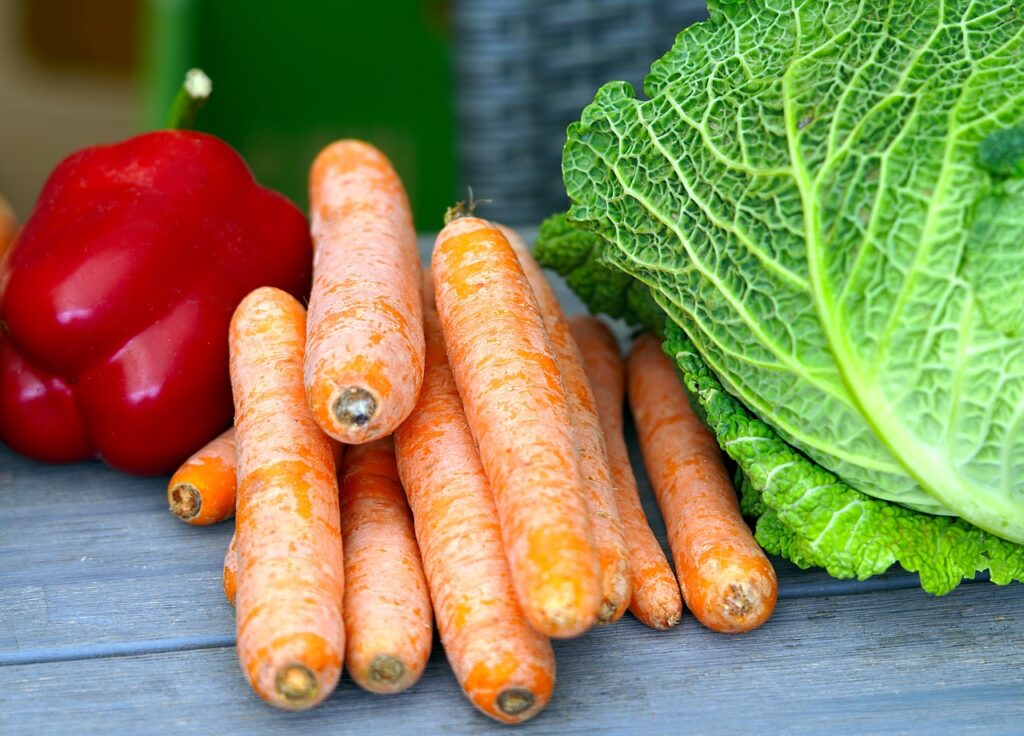Vitamin A is a fat-soluble vitamin that plays a crucial role in numerous bodily functions. It exists in two main forms:
- Preformed Vitamin A (Retinol): Found in animal products like liver, fish, and dairy. It is readily used by the body.
- Provitamin A Carotenoids: Found in plant foods like carrots, sweet potatoes, and leafy greens. The body converts these compounds (such as beta-carotene) into retinol.
Key Functions of Vitamin A
- Vision: Crucial for maintaining healthy vision, particularly in low-light conditions.
- Immune Function: Supports the immune system and helps the body fight infections.
- Cell Growth: Plays a role in cell differentiation and growth, particularly for skin and mucous membranes.
- Reproductive Health: Important for reproductive processes and fetal development.
- Antioxidant Properties: Protects cells from oxidative damage.
Deficiency Risks:
A deficiency can lead to issues like night blindness, increased susceptibility to infections, and skin problems. It’s important to maintain a balanced diet to ensure adequate intake of this vital nutrient.
Vitamin A deficiency can occur for several reasons, including
- Inadequate Dietary Intake: Not consuming enough foods rich in vitamin A, particularly in populations with limited access to a variety of foods.
- Malabsorption Disorders: Conditions such as celiac disease, Crohn’s disease, or cystic fibrosis can impair the absorption of fats and fat-soluble vitamins, including vitamin A.
- Liver Disease: The liver stores vitamin A, so liver conditions can affect the body’s ability to store and mobilize this nutrient.
- Chronic Diarrhea: This can lead to loss of nutrients, including vitamin A.
- Dietary Restrictions: Vegetarians or vegans may be at risk if they do not consume enough carotenoid-rich plant foods or fortified products.
- Poverty and Food Insecurity: Limited access to a variety of foods can contribute to deficiencies.
- Pregnancy and Lactation: Increased nutrient needs during these stages can lead to deficiency if not adequately met.
Addressing these causes often requires dietary changes, supplementation, or treatment of underlying health conditions.
If you’re looking to boost your vitamin A intake, here are some of the best food sources
- Liver: Beef or chicken liver is extremely high in vitamin A.
- Carrots: Rich in beta-carotene, which the body converts to vitamin A.
- Sweet Potatoes: Another great source of beta-carotene.
- Dark Leafy Greens: Spinach, kale, and collard greens are excellent options.
- Butternut Squash: Also high in beta-carotene.
- Red Bell Peppers: Packed with vitamins and antioxidants.
- Mangoes: A delicious fruit that provides a good amount of vitamin A.
- Eggs: Especially the yolk, which contains vitamin A.
- Fortified Foods: Certain dairy products and cereals are enriched with vitamin A.
Incorporating a variety of these foods can help improve your vitamin A levels. Stay Healthy!! Stay Happy!!


